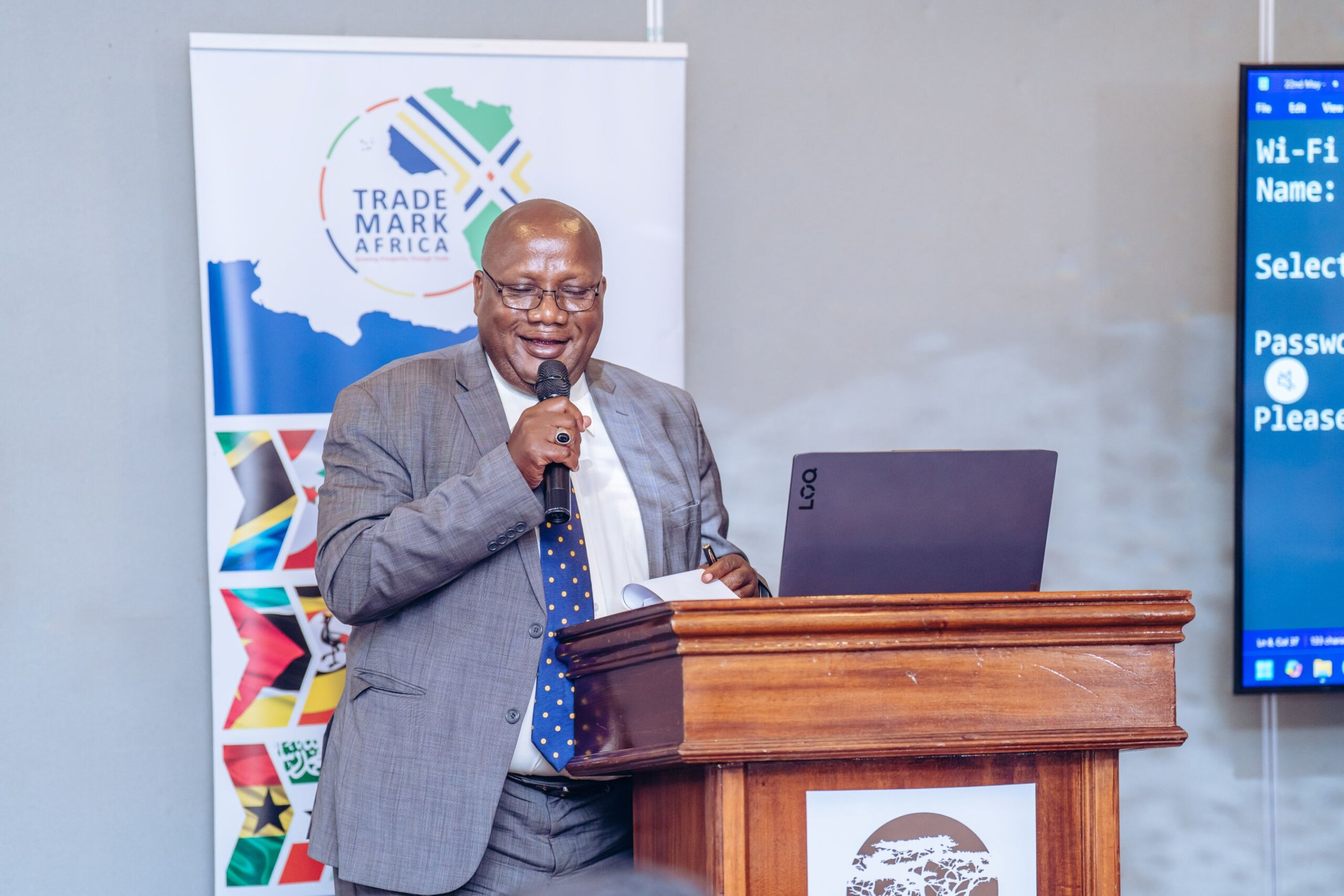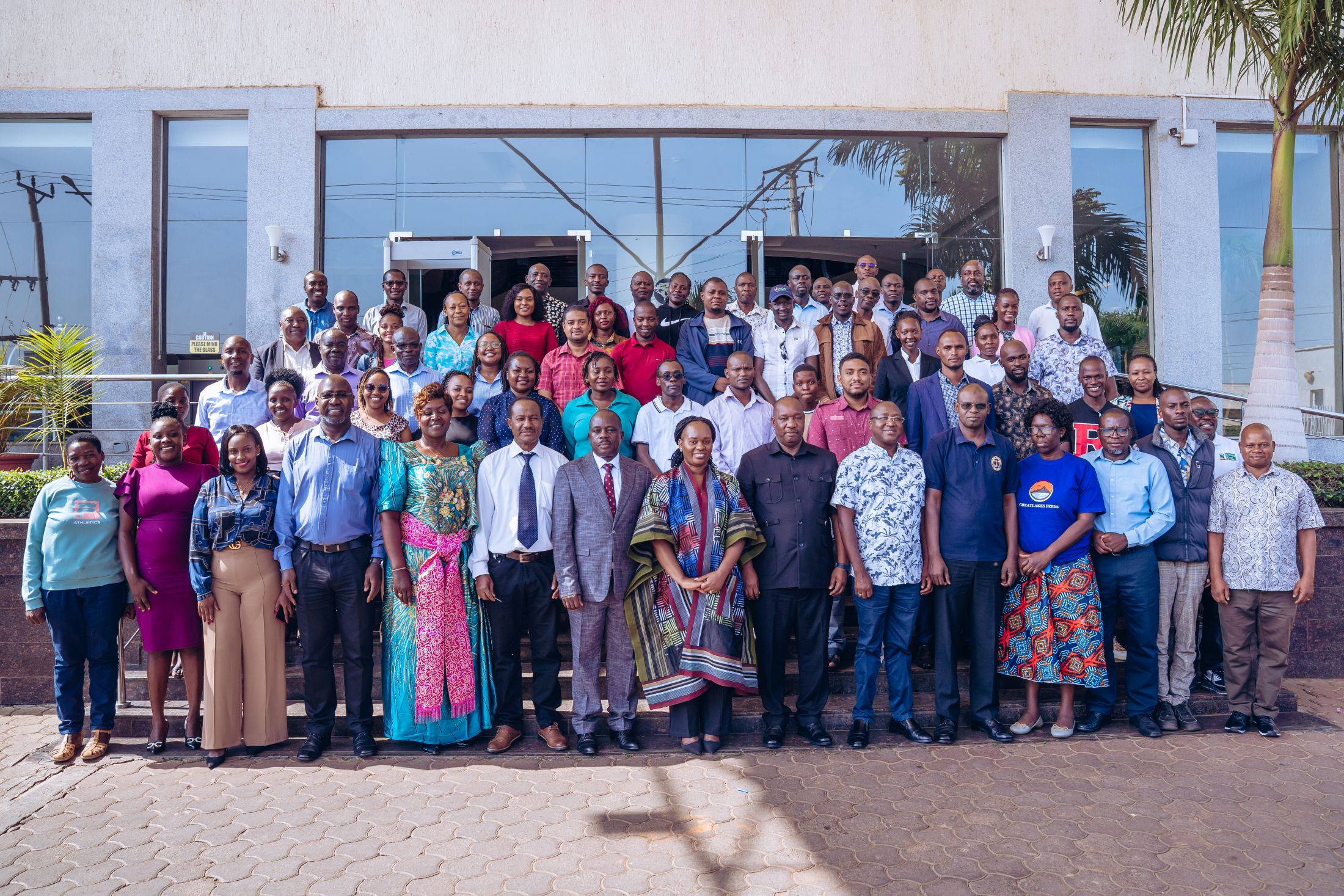Stakeholders pose for a group photo during the National Fisheries Stakeholders Consultative Workshop held in Kisumu, Kenya, on 26–27 June 2025
National Fisheries Stakeholders Workshop Deliberates on Policy Coordination, Gender Inclusion, and Trade Opportunities under the Fisheries Programme.
Kenya’s fisheries sector holds immense potential to drive inclusive economic growth and regional trade, but only if policies are harmonised, coordination is strengthened, and women and youth are fully empowered to participate meaningfully.
This was the rallying call from stakeholders who gathered in Kisumu from 26 to 27 June 2025 for a national fisheries workshop intended to strengthen cross-border trade and unlock opportunities for women and youth in the sector.
The two-day event was convened under the Women and Youth Economic Empowerment in Fisheries through Inclusive Market Access programme, a four-year initiative led by TradeMark Africa and the African Continental Free Trade Area (AfCFTA) Secretariat, in partnership with the Mastercard Foundation. The initiative is being implemented in Kenya, Uganda, Tanzania, the Democratic Republic of Congo (DRC), Zambia, Nigeria, across 11 border crossings, and in select island states in Africa.

Kennedy Onyango, the County Executive Committee Member (County Minister) for Agriculture, Livestock and Fisheries for Kisumu County, Kenya speaking at the Workshop.
The programme seeks to dismantle structural barriers that prevent women and youth from fully participating in the fisheries value chain, thereby enhancing their potential for economic growth. Main objectives include the provision of training, strengthening of supply chain linkages, promotion of digital solutions, simplification of trade regulations, enforcement of standards, and facilitation of cross-border market access. The target is to create or enable over 240,000 meaningful, sustainable, and decent jobs by 2028.
At the Kisumu workshop, a range of actors, including county and national government officials, fishers, traders, researchers, youth and women leaders, private sector representatives, and civil society organisations, convened to identify shared priorities for the transformation of the sector.
“We are creating a strategic framework to clarify roles, foster innovation, and ensure women and youth are part of the solution,” said Mathews Wanjala, Senior Programme Manager for Market Development and Private Sector Engagement at TradeMark Africa. He noted that the forum presented a valuable opportunity for public and private sector actors, researchers, and policymakers “to reflect on the challenges and opportunities in cross-border trade within the sector.”
Despite its potential, the fisheries sector continues to suffer from fragmented policies and inconsistent enforcement across counties and borders. The forum underscored the urgent need for reforms to create a more enabling environment for small-scale traders and cross-border commerce. Proposals included aligning permits, pricing, taxation, and licensing frameworks; clarifying institutional mandates to reduce duplication; and improving enforcement of existing legislation. Participants also called for stronger engagement with regional blocs such as the East African Community (EAC) and the Common Market for Eastern and Southern Africa (COMESA) to ensure that member states uphold their shared commitments.
“It is not enough to have harmonised protocols on paper. The problem is implementation,” said Emma Adongo, a fish trader and youth leader with the Busia Women Cross-Border SACCO. She further emphasised that unless all relevant actors follow through on implementation, particularly on policies designed to support women and youth, progress will remain limited.
The workshop also placed strong emphasis on addressing social and financial barriers that disproportionately affect women and youth in fisheries and aquaculture—especially those working in informal or cross-border contexts.
“Starting a fish business can be costly. Our appeal to the private sector and development partners is to support us in accessing loans on favourable terms so that we can expand our businesses,” Ms Adongo added.
Additional recommendations put forward included improving access to financial services for women traders, promoting collective marketing, and enhancing transparency and accountability within SACCOs. Investment in market infrastructure—such as hygienic storage and handling facilities and crèches at landing sites—was also proposed to improve working conditions for women in the sector.
Further measures included expanding gender sensitisation and capacity-building for shared household decision-making, providing mentorship and start-up capital for youth (particularly in aquaculture), and strengthening cooperatives in border areas to boost bargaining power and protect traders from exploitation.
Participants also advocated for the establishment of a national digital platform to facilitate sector-wide knowledge exchange, greater collaboration with financial institutions and insurers, and the development of robust monitoring and evaluation systems to track the impact of interventions.
“The aquaculture and Blue Economy sectors are full of promise. Young people bring energy and drive. If we can reduce production costs, especially for feed, and link them with finance, they can transform the sector,” said Samson Kidera, Regional Coordinator at the Ministry of Mining, Blue Economy and Maritime Affairs.















